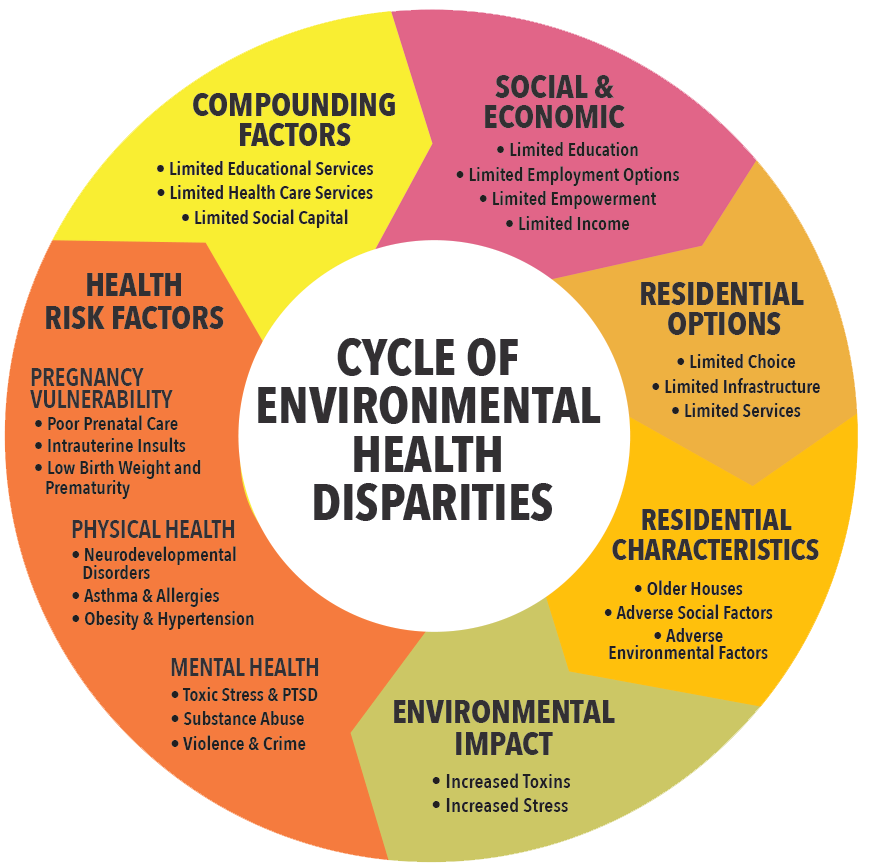The environment that we live in affects our health and well-being. For those that live in poverty, an unhealthy environment can contribute to being trapped in a cycle of poverty. For example: bad air quality is correlated with increased sickness; being out sick leads to poor performance in work or school; poor performance leads to an inability to get ahead; this inability leads to living in unhealthy environments; and the cycle continues.
One of our partner organizations, Break the Cycle of Health Disparities (BTCHD) “is a non-profit established to address the health, environmental, socio-economic, and ecological disparities of health for children living under adverse social and economic circumstances in communities.”
This multidisciplinary academic program focuses on cultivating future leaders in all academic fields. They have over 15 years of research on environmental and climate-related poverty issues and best-practices.
In Georgia, approximately 1.2M families live in poverty, the majority of which live in rural areas with little access to educational and health resources.
Rural Health Info
Throughout the year, Science for Georgia will be highlighting BTCHD events and research. This topic has the potential to involve scientists from many different disciplines to provide scientific input: biologists and chemists on the physical impacts, economists on the fiscal impacts, medical doctors on the health effects, sociologists on best-practices in applying social change, engineers on potential solutions.
Work with us to spread the word and find proactive methods to implement this impactful research.

